xenoc_1 rated Acceptance: 4 stars
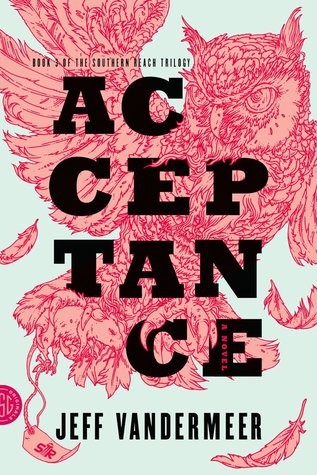
Acceptance by Jeff VanderMeer (Southern Reach, #3)
From the publisher---
It is winter in Area X, the mysterious wilderness that has defied explanation for thirty years, …
This link opens in a pop-up window

From the publisher---
It is winter in Area X, the mysterious wilderness that has defied explanation for thirty years, …
I think Steve Erickson's "Days Between Stations" has a train that goes near Area X. I have not had my perceptions as warped, by a mainstream literary/SF mashup, since reading Erickson's superb book and its sequels/related pieces. VanderMeer's prose works to pull the reader into the inner life of the unnamed narrator (all the characters are unnamed, for in-universe valid reasons). On the surface of the story, if you go by the blurb, you might think it's another take on "The Dome" by King - an area mysteriously cut off, but this time we're following the activities of the agencies on the outside.
No, not at all. The only King that is close to this is the bizarrely unfocused wandering in the shifting sands and spaces and warped timeframes of his first "Dark Tower" book, "The Gunslinger". Yet we are neither in Mid-World nor Erickson's world - we're in what …
I think Steve Erickson's "Days Between Stations" has a train that goes near Area X. I have not had my perceptions as warped, by a mainstream literary/SF mashup, since reading Erickson's superb book and its sequels/related pieces. VanderMeer's prose works to pull the reader into the inner life of the unnamed narrator (all the characters are unnamed, for in-universe valid reasons). On the surface of the story, if you go by the blurb, you might think it's another take on "The Dome" by King - an area mysteriously cut off, but this time we're following the activities of the agencies on the outside.
No, not at all. The only King that is close to this is the bizarrely unfocused wandering in the shifting sands and spaces and warped timeframes of his first "Dark Tower" book, "The Gunslinger". Yet we are neither in Mid-World nor Erickson's world - we're in what might be the Gulf Coast or the Florida Atlantic coast, though again the exact place, before the world changed in the event that turned it into Area X, is never named.
Didn't know of this series, nor of VanderMeer, till I read John Scalzi's recent "Big Idea" post about/by VanderMeer on the 2nd book, the just-published "Authority". Read the substantial excerpt of that at McMillan's site, and immediately popped over to Kobo to buy the first. Could not stop reading it.
Usually I like to let perceptions settle at the end of a book that has a definite sequel, that is part of a planned series. Often, because the author hasn't released it yet. Even if I come late to it, I like to wait a while, because the author didn't release in immediate sequence, thus wrote expecting a gap in the reader's memory. But with both the short publishing gap between early-2014's "Annihilation" and last week's "Authority", the second of his Southern Reach Trilogy, I want to stay in the still-altered mindset coming out of "Annihilation" when confronting "Authority". Wasn't in the budget to buy another full-priced (not overpriced but normal "traditionally published" ebook pricing) book this week, but I need to go back to Area X.
"Uh-oh, he's starting with a 'but...'". Sadly, yes. I thoroughly enjoyed this novella, as I have all the others in Penn's ARKANE series, as rollicking good fun, fast-paced entertainment. In a topic area I like, the intersection of spirituality, history, psychology. Well-researched, readable. With a kick-butt hero (female heroes are called hero, just like female actors are rightly called actor) in Dr. Morgan Sierra, a character I want to learn so much more about.
But...
There's something missing in this book, and I don't just mean the page count nor the inevitable structural differences between a novella (this) and a full-length novel (the original trilogy of novels and arguably also "One Day in Budapest"). It's taken me about a day to put some solid thoughts and now words to it. What's missing is the whole set of support that Morgan supposedly has, the ARKANE-verse, so to speak.
For 2 and …
"Uh-oh, he's starting with a 'but...'". Sadly, yes. I thoroughly enjoyed this novella, as I have all the others in Penn's ARKANE series, as rollicking good fun, fast-paced entertainment. In a topic area I like, the intersection of spirituality, history, psychology. Well-researched, readable. With a kick-butt hero (female heroes are called hero, just like female actors are rightly called actor) in Dr. Morgan Sierra, a character I want to learn so much more about.
But...
There's something missing in this book, and I don't just mean the page count nor the inevitable structural differences between a novella (this) and a full-length novel (the original trilogy of novels and arguably also "One Day in Budapest"). It's taken me about a day to put some solid thoughts and now words to it. What's missing is the whole set of support that Morgan supposedly has, the ARKANE-verse, so to speak.
For 2 and a half books now, her partner Jake is either in hospital, or out of it finally, but we don't even get a phone call or text message between them, even when she's in range. Trafalgar Square is a pretty quick walk to the British Library, but we don't get even an abbreviated-for-novella scene at ARKANE kicking off this expected-pure-academic mission. A moment of tension about "weapon or no weapon" in a "show-don't-tell", perhaps Maretti warning her to stop by the armory but still-wounded, both physically and mentally, Morgan, wants no part of violence today, she just wants to be the academic for the first time in what seems forever. This could have been half a page. Instead, it's just Morgan's excessive inner dialog, which is almost always to herself rather than a reply/analyze/agonize over an interaction in a flashback.
In "Pentecost", Penn set up our new hero Morgan with a rich supporting cast and backup. In "Prophecy" they were mostly still around, and their being whittled down or out of touch served the story. But by "Exodus" we keep hearing about them but not much seeing them, even in flashback. I'm tired of hearing about the risk to Jemma and to Jemma's mom, Morgan's identical twin sister. I want to see some jeopardy again, or see the family dysfunction caused by Morgan taking her secret career as a superspy for the religious analogue of U.N.I.T. or S.H.I.E.L.D. (Pick your universe, though since aliens are handled by "an entirely different unit" I think Joanna already gave us a clue.)
Plus, Jake. First book all this sexual tension. It seems as if Penn doesn't know how to resolve that or if she wants to, so we keep finding ways to keep them apart. Meanwhile Morgan is starting to collect her series of gender-swapped Bond Girl characters.
I'd love to get back to the characters, settings, organizations, which Penn did such a great job of making us care about in the first book, rather than all the "guest stars". This isn't like "licensed property franchise" novels where nothing substantial can happen to Kirk, Spock, the Doctor, or Captain America in the books, because it might impact what happens in the "real series". This is the real series, this is where the stakes and the prime crew are supposed to be. I think Penn maybe even knows this, because near the end Morgan's inner dialog touches on how she needs to get back to her real partner. If even the author's lead character is voicing this frustration, it's well past time for it!
One other thing struck me as unusual for this series, not where I expected it to go. Now that Penn has gone there, I hope she embraces it rather than backpedals. Which is, and this next bit is spoilery so be forewarned
Spoiler
Space
Is
The
Lord's
Work
According
To
ARKANE
This time, the power of religious artifact / ritual is unquestionably genuine. Even with the Pentecost stones of fire, the "demon" transformation in Sedlec, and some of the oddities around the events in the search for the Ark, Penn, and her lead, Sierra, always had an alternate explanation, something that may have been science, even if not quite as we know it. Maybe it was the Lord's work (or the Devil's) but maybe something explicable, someday. At least that was how I read it.
This time it's real. Unquestionable. Too many things that are explainable only by the supernatural. In front of multiple witnesses. And oddly, the first time Penn writes as if the supernatural or divine is unquestionably real, it is the first time she uses a non-Abrahamic, non-monotheistic religion, instead using the pantheon of the Norse Gods.
As a loyal reader, that took me by surprise. What also took me by surprise is that Morgan Sierra, brought up in Israel by a Jewish father, an academic in an Anglican Christian and secondarily Roman Catholic surrounding (Oxford), in a Judeo-Christian-Islamic greater milieu, does not seem surprised by it. Instead it's just more of the supernatural and divine that she has started to accept happens. I get it that Morgan is on a journey that will force her to accept that the stories of God may be real. But I think that she still was expecting HER God, not All-Father Odin, to be the one with the power.
Please don't take this as a pan of this book nor of the series. I totally enjoyed the read. But I do think there could be so much more, and I want Penn to fulfill the promise of the intriguing characters, settings, premises, and themes she has built.

A powerful, blazingly honest memoir: the story of an eleven-hundred-mile solo hike that broke down a young woman reeling from …
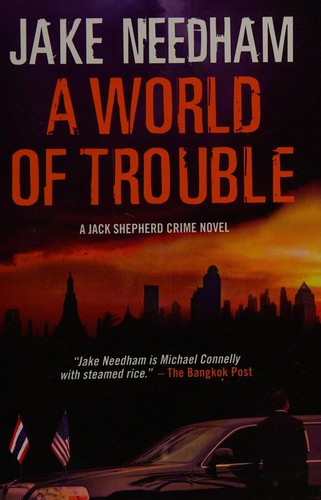
A long slog through a deeply flawed book. Yet strangely compelling, as long as taken in small doses.
Let's get its many flaws out of the way up front.
First, this is just damnably difficult to read, due to Hodgson's decision to write in a pseudo-18th-century style. Not even in a consistent version, because in the latter part of the book, he shifts into some time-warped "future-past-infinitive" mashup of a tense. "And I to put on my armor. And Mine Own Maid to walk with me" type of thing. Earlier he would have done "And I put on my armor".
Worse, in both styles, he goes on nigh upon forever belaboring a point, repeating so that you doth come with me in all feelings and sense, as would any Reader of non-dulled Wit, as in Those Days no less than These, so well-knownt to be unspoke at any need. But …
A long slog through a deeply flawed book. Yet strangely compelling, as long as taken in small doses.
Let's get its many flaws out of the way up front.
First, this is just damnably difficult to read, due to Hodgson's decision to write in a pseudo-18th-century style. Not even in a consistent version, because in the latter part of the book, he shifts into some time-warped "future-past-infinitive" mashup of a tense. "And I to put on my armor. And Mine Own Maid to walk with me" type of thing. Earlier he would have done "And I put on my armor".
Worse, in both styles, he goes on nigh upon forever belaboring a point, repeating so that you doth come with me in all feelings and sense, as would any Reader of non-dulled Wit, as in Those Days no less than These, so well-knownt to be unspoke at any need. But I not to tell this you know so well.
(Yes, I just used his style. Ramble ramble ramble ramble ramble but of course I shall not ramble!)
Many think this was deliberate, to get you, the reader, unstuck in time (to borrow Vonnegut's famous phrase). Right from the start, in the "framing story" of the first chapter's "present-day", by making that other than the reader's present.
Second, even for a turn-of-last-century author, writing in the first decade of the 20th century, he has horribly backward and offensive views of women. Specifically, His Own Maid, his Mirdath the Beautiful in her end-of-days rebirth as Naani, the Damsel in Distress for whom he risks all in his perilous journey to save. Once he saves her, she who is his Love for All Eternity... he calls her a Naughty Maid (and not in the fun way), is stern because she must know that he is her Master, and at times he whips her so that she will understand his love and mastery of her as her One True Master and Love. Yeah. Like that. Except "whipped" spelt whipt. She, of course, loves it. Then goes back to being an impudent and distant and thus naughty maid.
Whereas in "reality", to a 21st or even most-of-20th century reader of this tale, she is obviously shellshocked, suffering PTSD, in deep grief from loss of her family and her entire world, in utter confusion of her imaginary lover becoming real, and scared out of her wits.
Third, the author, and through him his Mary Sue protagonist, is obviously overproud of his great physique and strength. Thus embodying his unnamed protagonist with not only strength, but the greatest strength of all the Humans of the Night Land. Not only the telepathic Night Hearing, but the most sensitive of all who have Night Hearing.
Yet... this novel is still a classic and the prototype for so much of modern SF, specifically but not only the "Dying Earth" subgenre. Other than "The Time Machine",to which many contemporaries and later critics contended "The Night Land" was an attempt at a sequel of sort, it is the first of English-language novels portraying the deep-time, dying sun, dying earth, end of days. Wells' Traveler went there but then went backwards to the future, but far less distant, days of the Morlock and the Eloi. Hodgson takes us all the way there and stays there.
Hodgson arguably is the first to introduce the "arcology" to fiction, which becomes common in so much written and visual science fiction. The giant, self-contained, city from which no one ever leaves - used in Asimov's "Caves of Steel", referenced in so many films, underground in Hugh Howey's "Wool", even seen in the "Star Trek" universe in places such as the Kansas backgrounds near the shipyard in the 2009 film. Numerous more examples all through 20th and 21st century SF. It started here, in "The Night Land", though Hodgson never used the term "arcology".
"X's" journey (the protagonist is often referred to as "X", and Hodgson published an abridged version called "The Journey of X" to secure US copyright), is compelling, and terrifying. As with listening to a newly-learned foreign language, or listening to shortwave radio or distant AM stations, where one can learn to "hear through the interference", the difficult prose style eventually fades into the background and the story becomes constantly thrilling. Well, except for the "whipt maid" nonsense. The months it took me to read this, in many small doses, are mostly on getting past this learning curve and into the first third to half of the book. The rest of it went smoothly down, over perhaps a couple of weeks of suitably-moody late-night reading sessions of 20-40 pages at a go.
Further, Hodgson is arguably the originator, in modern SF and Horror/Fantasy, of the use of Eldritch Horrors (to borrow the phrase from the novel's TV Tropes dedicated page), supernatural or super-scientific, but in either case, life and soul-destroying, monsters from the beyond. He got there before Cthulhu was a bunch of little tentacles in Lovecraft's mind.
I sought this book out, because of another deeply-flawed yet compelling SF novel I read about a year ago, Greg Bear's City at the End of Time. That too has a city which is the Last Refuge of Humanity, though Humanity is very transhuman. It too has two "original-type" humans and two "present-day" humans linked across the endless years.
At the time I read it, I wasn't even aware of "The Night Land" nor did I know that Bear deliberately used it and wrote "City at the End of Time" in part as homage to it. Bear goes off in a different direction, including all the way to the End of Time, and beyond. He pulls in quantum theory, cosmology, and the theme of "is reality the sum of our storytelling?" which ties right into quantum theory requiring an Observer. Yet his "Watcher" comes right from the many giant Watchers that Hodgson included a century earlier. Bear's work was also a literary slog in places, exposition-laden, but likewise thought-provoking and thrilling. Despite its flaws, it was well worth the money and well worth the time. I am planning on re-reading it sometime in the next year, after now knowing the background of its prototype, and having had time to ponder the themes and plots of both novels.
Both worth it. Neither easy.
I would recommend Hodgson's "The Night Land", if you do enjoy the Dying Earth genre, if you have patience, and if you can accept that its authorship is from a century ago, with its protagonist's POV from 2 centuries earlier than that, plus from untold millennia later than now. Societies, mores, languages, gender roles, all have changed, and all will again.
Though there are low-priced paid versions of "The Night Land", at Kobo and likely at Amazon and B&N Nook too, it is also free from the Gutenberg project in various formats, such as EPUB for Kobo, Nook, Sony, Aldiko, etc., and MOBI for the Kindleverse. If you have a Kobo eReader or their apps, Kobo also has that EPUB version at their web store, free, but officially part of your Kobo library so that it can be synced across devices and doesn't need to be sideloaded.
Amazon Kindle version (free as of this writing):
http://is.gd/NightLandAMZ
Kobo Free Version: is.gd/NightLandKobo
Project Gutenberg versions: is.gd/NightLandGut
I just whipped through this near-future military SF space opera book so fast, the heat sinks cooling my Kobo are still radiating into space.
Look, it's lightweight stuff. But a really fast, thrilling, funny, yet terrifying ride. It is the first of a series, and it ends on a bit of a cliffhanger both large and small-scale. Yet reasonably self-contained, at least enough so that I feel ok about switching to one of my many other to-read books next. Though likely to buy the next 2 installments soon.
If you like near-future, "what we we do if the aliens attacked us right now?" SF, this may be perfect. It's set (very minor spoilers)about 15 years from now. Boeing 747s are still in use on long-haul intercontinental flights. We humans have come up with 2 or 3 fascinating pieces of advanced tech, but have not yet applied any of them. Everything …
I just whipped through this near-future military SF space opera book so fast, the heat sinks cooling my Kobo are still radiating into space.
Look, it's lightweight stuff. But a really fast, thrilling, funny, yet terrifying ride. It is the first of a series, and it ends on a bit of a cliffhanger both large and small-scale. Yet reasonably self-contained, at least enough so that I feel ok about switching to one of my many other to-read books next. Though likely to buy the next 2 installments soon.
If you like near-future, "what we we do if the aliens attacked us right now?" SF, this may be perfect. It's set (very minor spoilers)about 15 years from now. Boeing 747s are still in use on long-haul intercontinental flights. We humans have come up with 2 or 3 fascinating pieces of advanced tech, but have not yet applied any of them. Everything else is pretty much as it is today. Except, the USA is utterly irrelevant after its economy and political functionality has pretty much collapsed. Like I said, pretty much as it is today :) China and Iran are the major global powers, Australia and the EU are strong secondary powers, and some of the others of the BRICs have some significance, but North America? Irrelevant. Even to the aliens, who proceed to arrive, and blow up the centers of research into the technology they forbid us to develop.
We humans react as humans typically do. We make weapons out of the tech they forbid us to use, and take the war to them.
If you like this humans-under-siege, current-day-tech style, such as if you're a fan of "Space: Above and Beyond", or "Stargate: SG-1", you'll feel this fits right in. Likewise new-BSG fans, where the Colonies were essentially current-Earth tech with FTL and slightly advanced cybernetics. Adams in fact borrows some tropes from them. While also happily and openly using many other tropes: "I'm not Montgomery-frakking-Scott, Captain!" (Didn't say "frakking"). Openly calling their unobtanium, "indestructium". XKCD even figures into the plot.
Also, do you like tough, effective, real-seeming female space officers? Let me just say that Susan Ivanova, Samantha Carter, Kara Thrace, and likely Honor Harrington (sad to say I haven't read that series yet) would fit right in with TFR Beijing Commanding Officer Melissa Liao. Including slugging any jerk in the nose, effectively, when required.
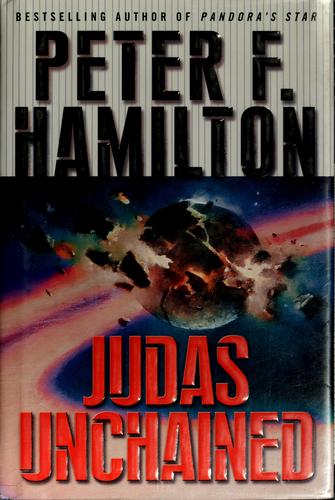
The previous novel, Pandora's Star, introduced the Intersolar Commonwealth, a star-spanning civilization of the twenty-fourth century. Robust, peaceful, and confident, …

Peter F. Hamilton: The Evolutionary Void (2010, Del Rey)
Exposed as the Second Dreamer, Araminta has become the target of a galaxywide search by government agent Paula Myo and …
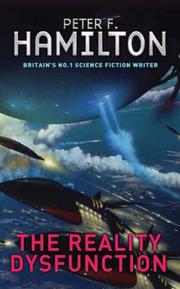
Space is not the only void...In AD 2600 the human race is finally beginning to realize its full potential. Hundreds …
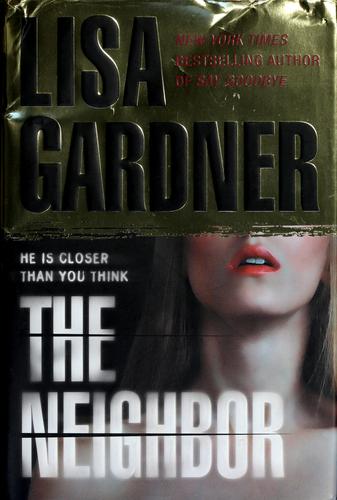
From a master of suspense comes a chilling new novel that explores the dangers lurking closer than you think. Because …